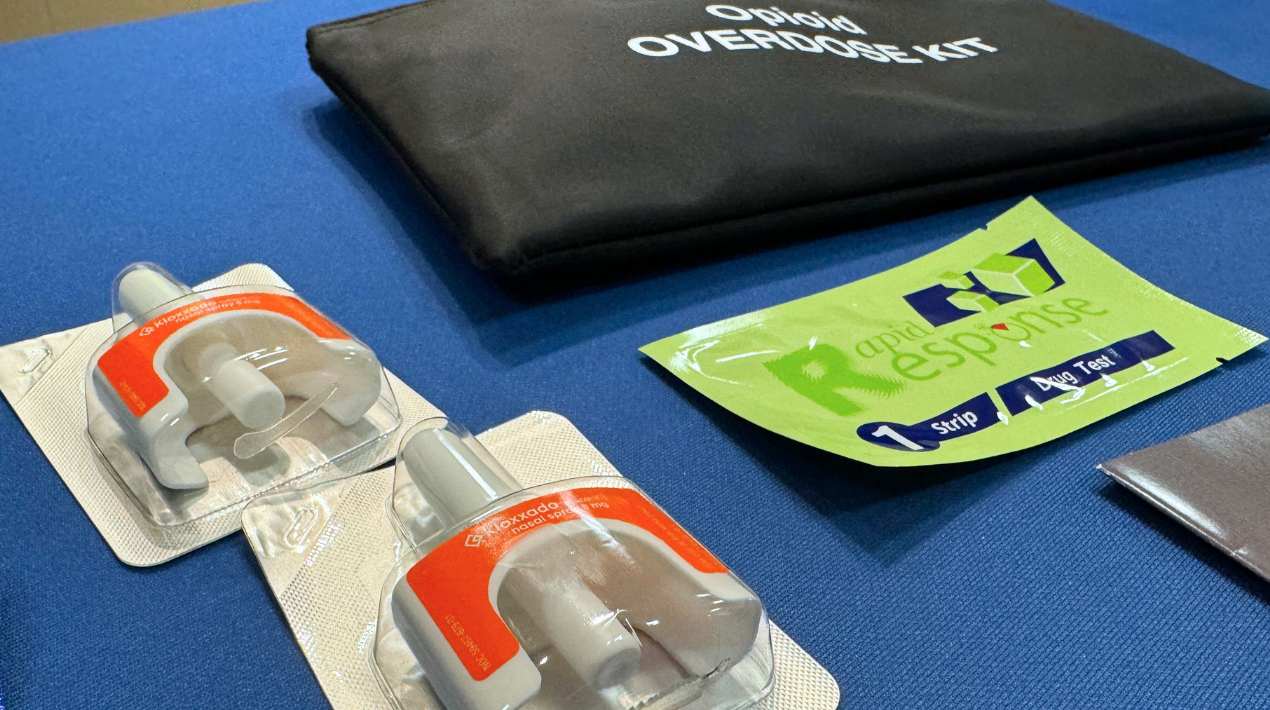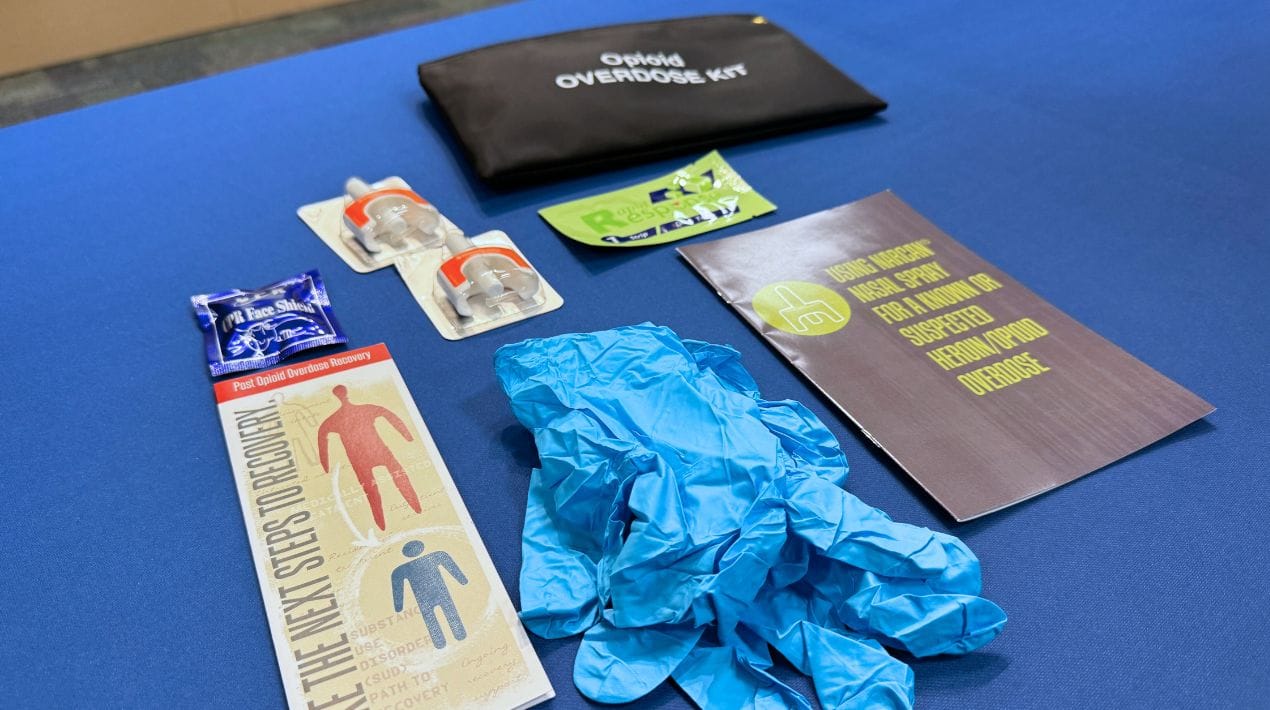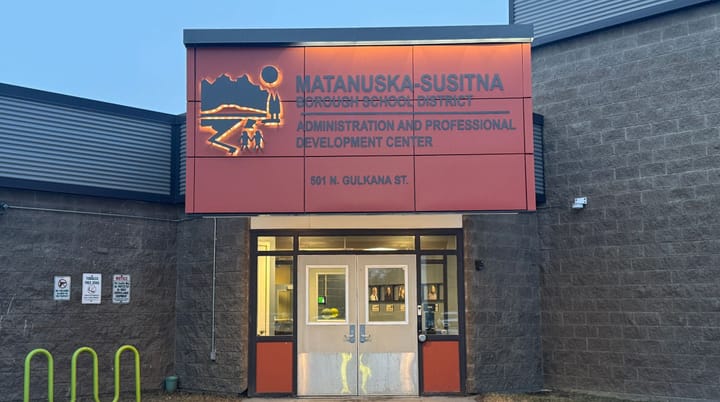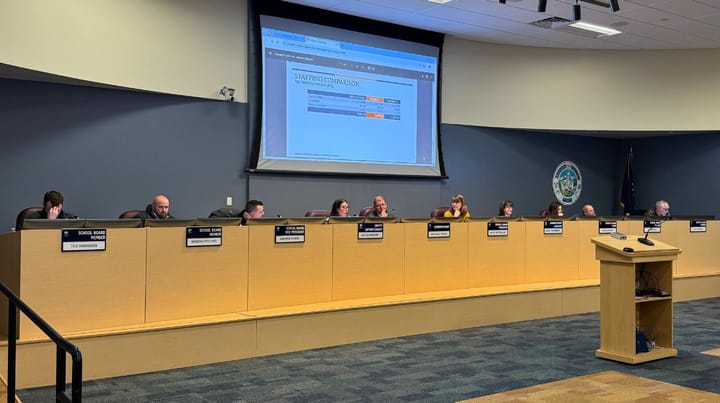All Mat-Su schools to stock anti-overdose medications under new state rule
The rule requires schools to keep on hand at least two doses of an anti-overdose medication.

What you need to know:
- Mat-Su district schools will soon have at least two doses of opioid overdose reversal drugs on hand under a new state law aimed at reducing drug-related deaths.
- Some Mat-Su schools already stock the medication, and school staff administered at least several doses last year, district officials said. The new rule will boost those schools' supply and provide the medication to others for the first time, they said. State officials will provide schools with a training video on administering the medication.
- Alaska has seen a 47% increase in overdose deaths in the last year, with most cases involving opioids like fentanyl, according to federal data. The state’s per capita rate of fentanyl poisoning is among the highest in the nation.
PALMER -- All Mat-Su schools will soon have at least two doses of an opioid overdose reversal drug on hand under a new state law aimed at reducing drug-related deaths.
The legislation requiring schools to have opioid overdose reversal drugs was signed into law Friday by Alaska Gov. Mike Dunleavy during a ceremony at the Matanuska-Susitna Borough School District administration building in Palmer.
The law requires all public schools statewide to have at least two doses of the medication in their main building and at least one dose available during school-sponsored events on campus. Rep. DeLena Johnson, a Republican from Palmer, sponsored the legislation.
Sign up for Mat-Su Sentinel
Get stories like this one straight to your inbox.
No spam, we promise. Unsubscribe anytime.
“Should the unthinkable occur and someone fall unresponsive because of an opioid overdose, the right device for a person trained to use it is going to be within reach to save a life,” Alaska Chief Medical Officer Dr. Robert Lawrence said during the bill-signing ceremony.
Many Mat-Su schools already have one such dose on hand, Deputy Superintendent Katie Gardner said in an interview Friday. The new law will increase supplies to three doses in some locations and the required two doses in others, she said.
The medications were used at least several times in Mat-Su schools during the 2023-24 school year, Gardner said. More details about those incidents are not available because of student privacy rules, she said. No doses have been used so far this school year, she said.
Mat-Su Sentinel thanks its sponsors. Become one.
Overdose-related deaths in Alaska increased 47% between 2022 and 2023, according to data from the federal Centers for Disease Control and Prevention.
Between August 2021 and August 2022, there were 264 overdose deaths in the state; over the past year, there were 388, federal data show. Most of those deaths were related to opioids, including fentanyl, according to state data. The rate is among the highest in the nation.
Life-saving overdose reversal drugs, typically administered as a nasal spray, can reverse the effects of an opioid overdose within minutes. Of the 75 nonfatal overdoses recorded by state health officials in January, 62 involved the use of such drugs, according to state health data.
“Alaska suffers from an opiate crisis,” Dunleavy said during remarks at the bill signing. “We know that Alaska has one of the highest, if not the highest, per capita rates of fentanyl poisoning here this past year. It’s not something that any of us are proud of.”
The new opioid overdose kits, which come in black zippered pouches, will be distributed across the state over the next several weeks, state health officials said. The kits include two doses of the nasal spray drug, safety gloves, a CPR face shield and strips that can test drugs for fentanyl. They said training on how to administer the medication will be provided through a short online video.

State officials recommend that school administrators store the kits in a central location with the school's heart defibrillator, which they also are required to keep on hand. School staff will regularly monitor the kits to ensure the drugs have not reached their expiration dates, officials said.
Mat-Su addiction recovery activist and former teacher Michael Carson said he hopes to someday see the anti-overdose medication requirement extended to school buses, where students can spend hours each day with little supervision. Such a provision was originally included in the legislation but was removed before passage. Without a state mandate, the decision to carry the drug on buses in Mat-Su would be up to bus contractor Durham, school district officials said.
The law requiring anti-overdose medication in schools, signed Friday, also includes a separate, unrelated measure ensuring that correspondence schools can continue to operate following an Alaska Supreme Court decision in May that found some public funding of the program violated the state constitution.
Dunleavy also signed a series of unrelated health care bills during a ceremony at a Capstone medical clinic in Wasilla earlier Friday, including legislation allowing medical clinics in the state to offer care through a subscription service known as "direct health."

Capstone co-owner Dr. Wade Erickson, who has spent nearly a decade advocating for the change, said the new law simplifies the cost of health care by allowing clinics to sell it in a membership package instead of through complicated health insurance plans. Such programs could lower employee healthcare costs for small businesses while reducing the burden of processing health insurance claims for clinics like his, he said.
Capstone clinics will offer direct care options under the new rule and continue to accept a variety of insurance plans, he said.
-- Amy Bushatz can be contacted at abushatz@matsusentinel.com.







